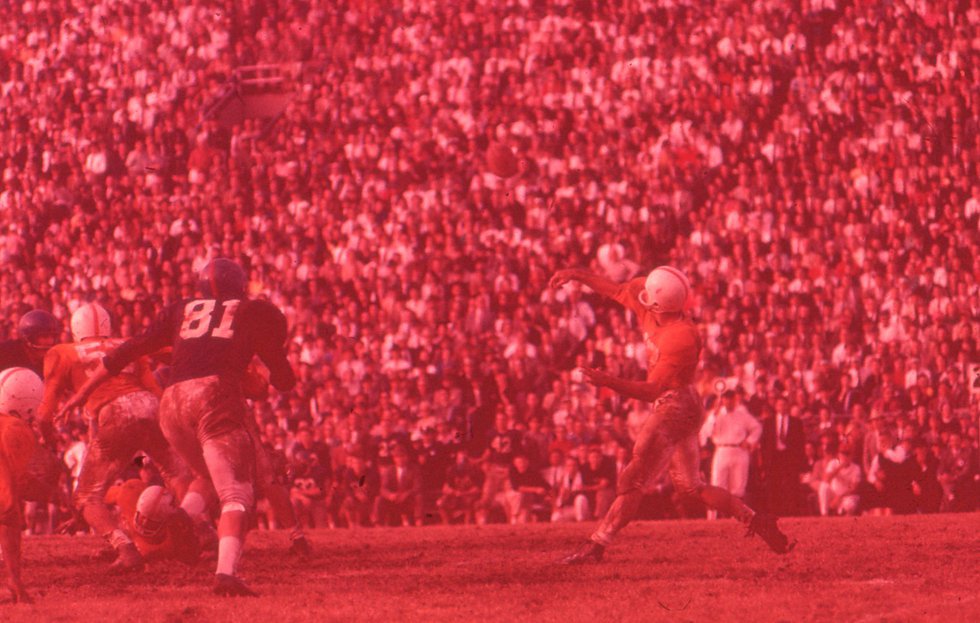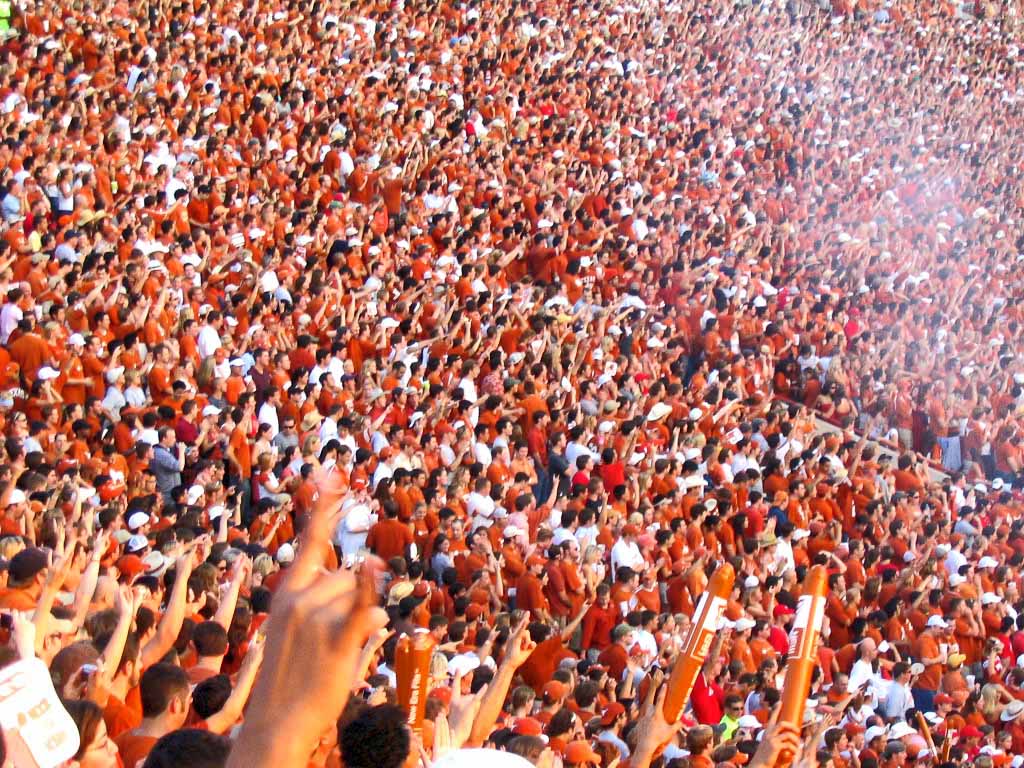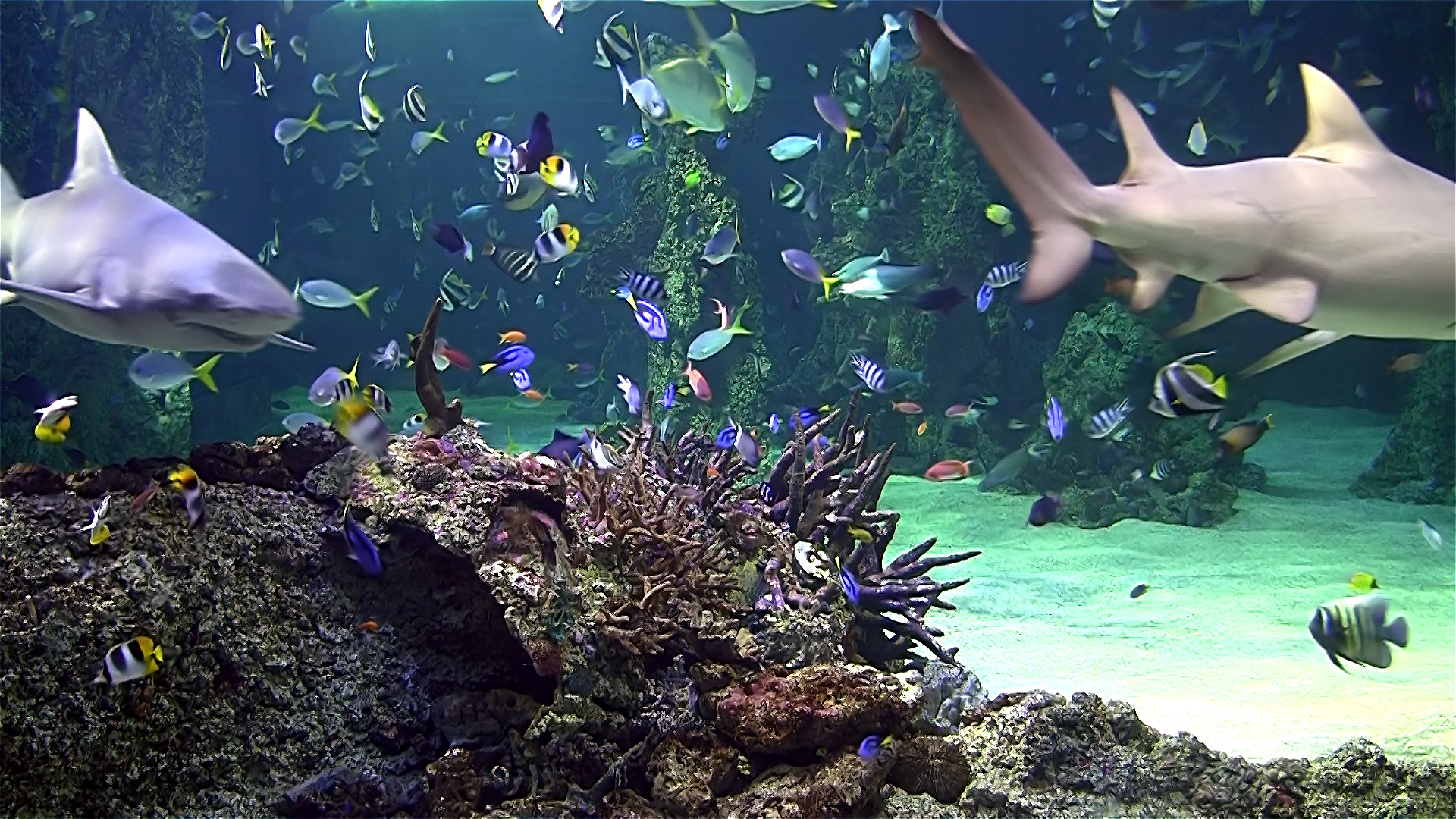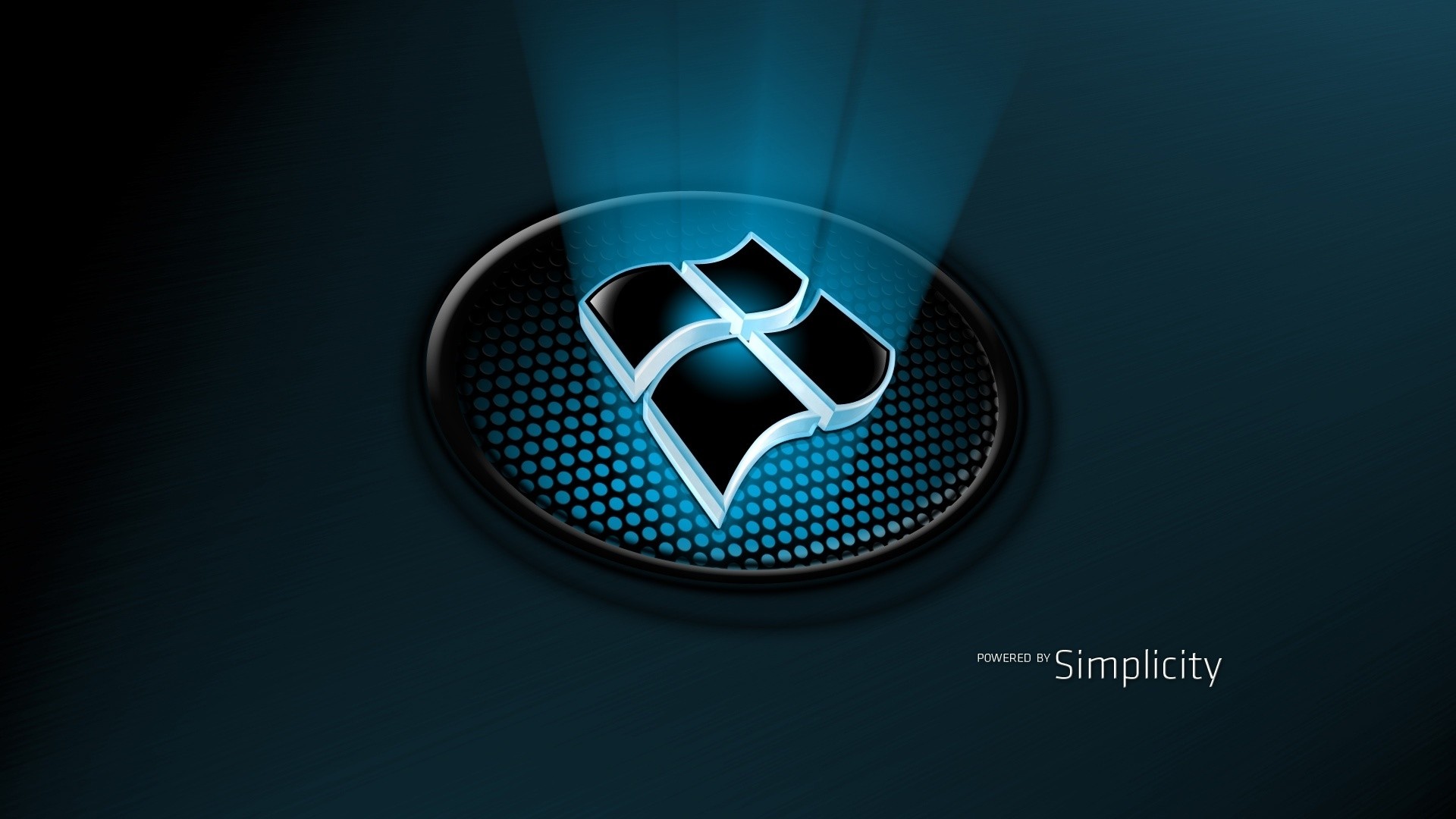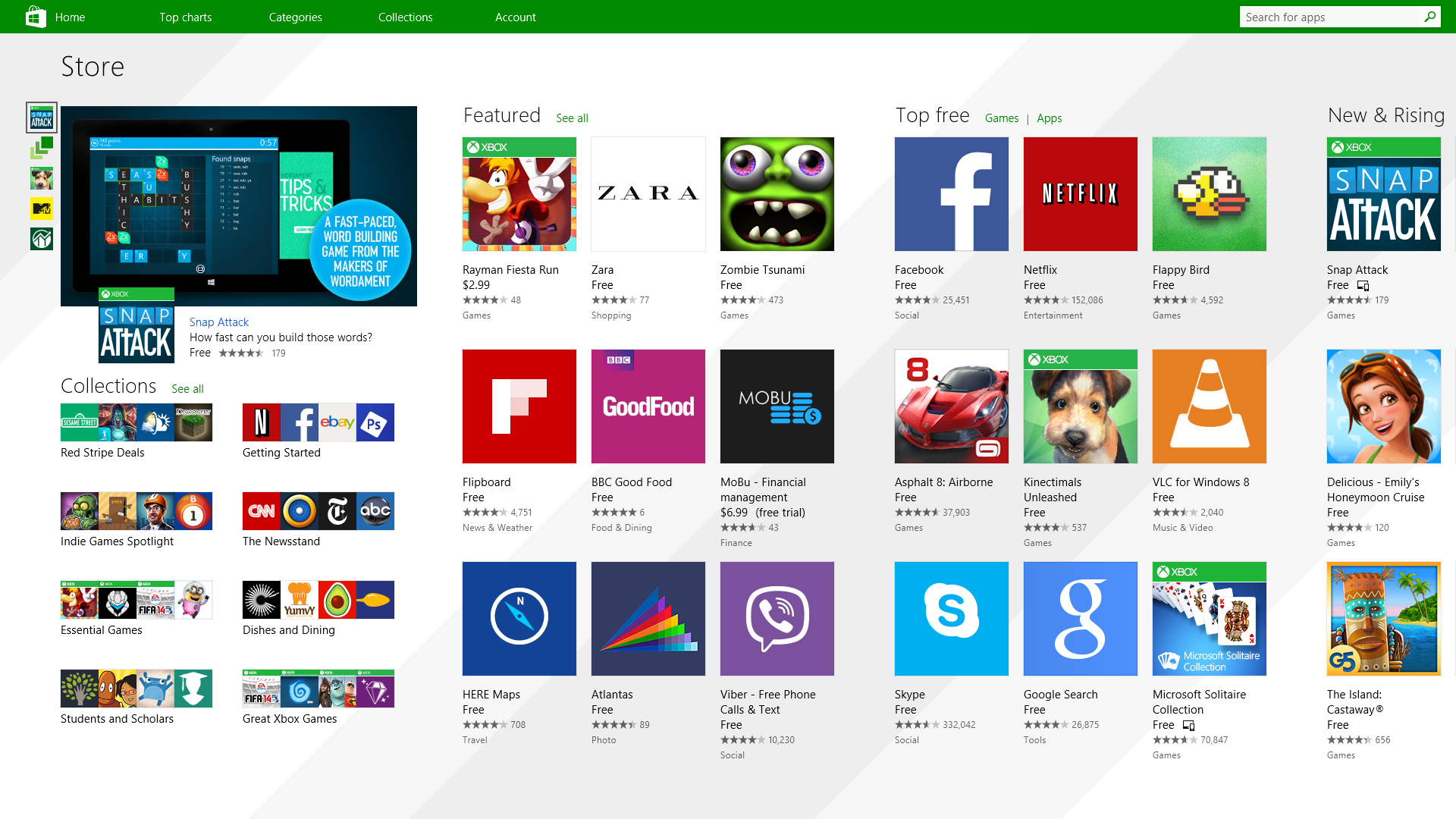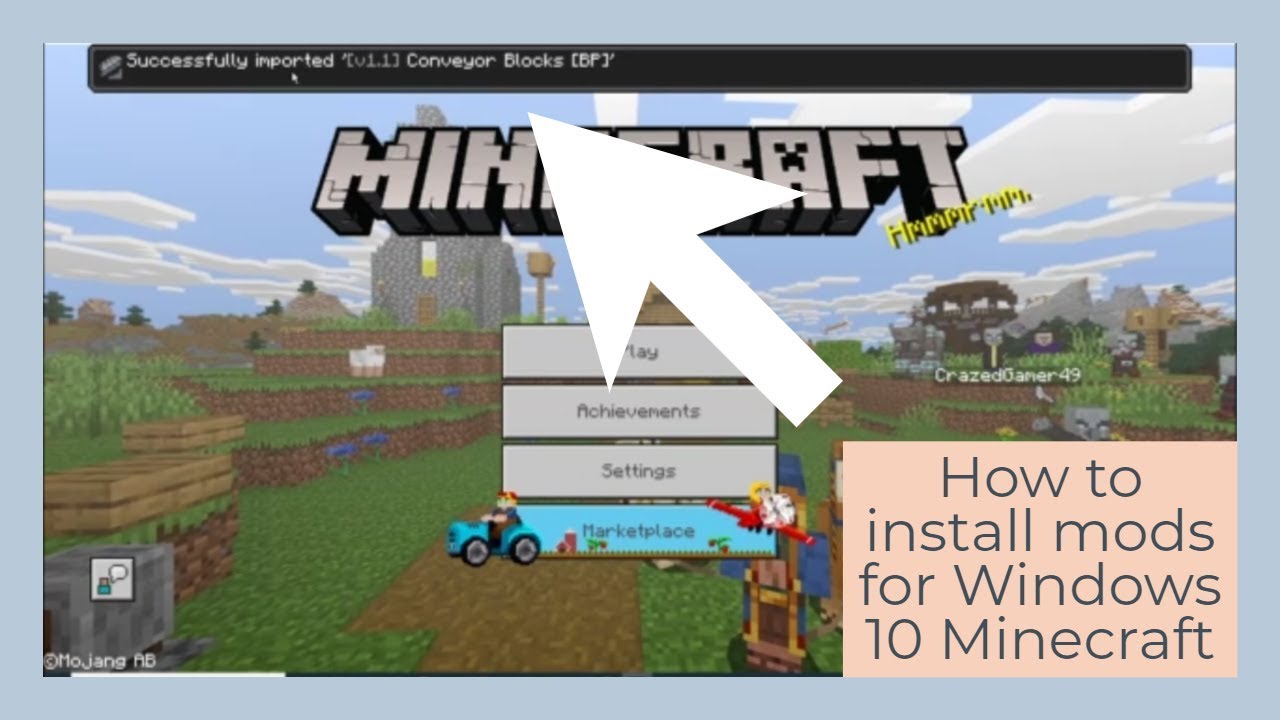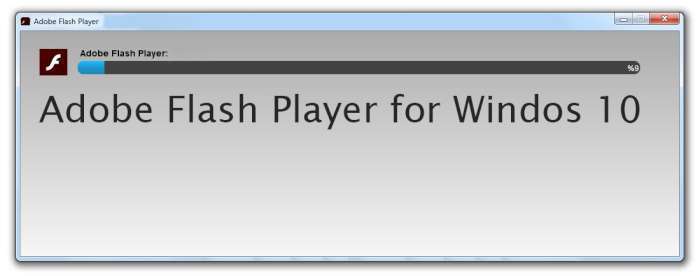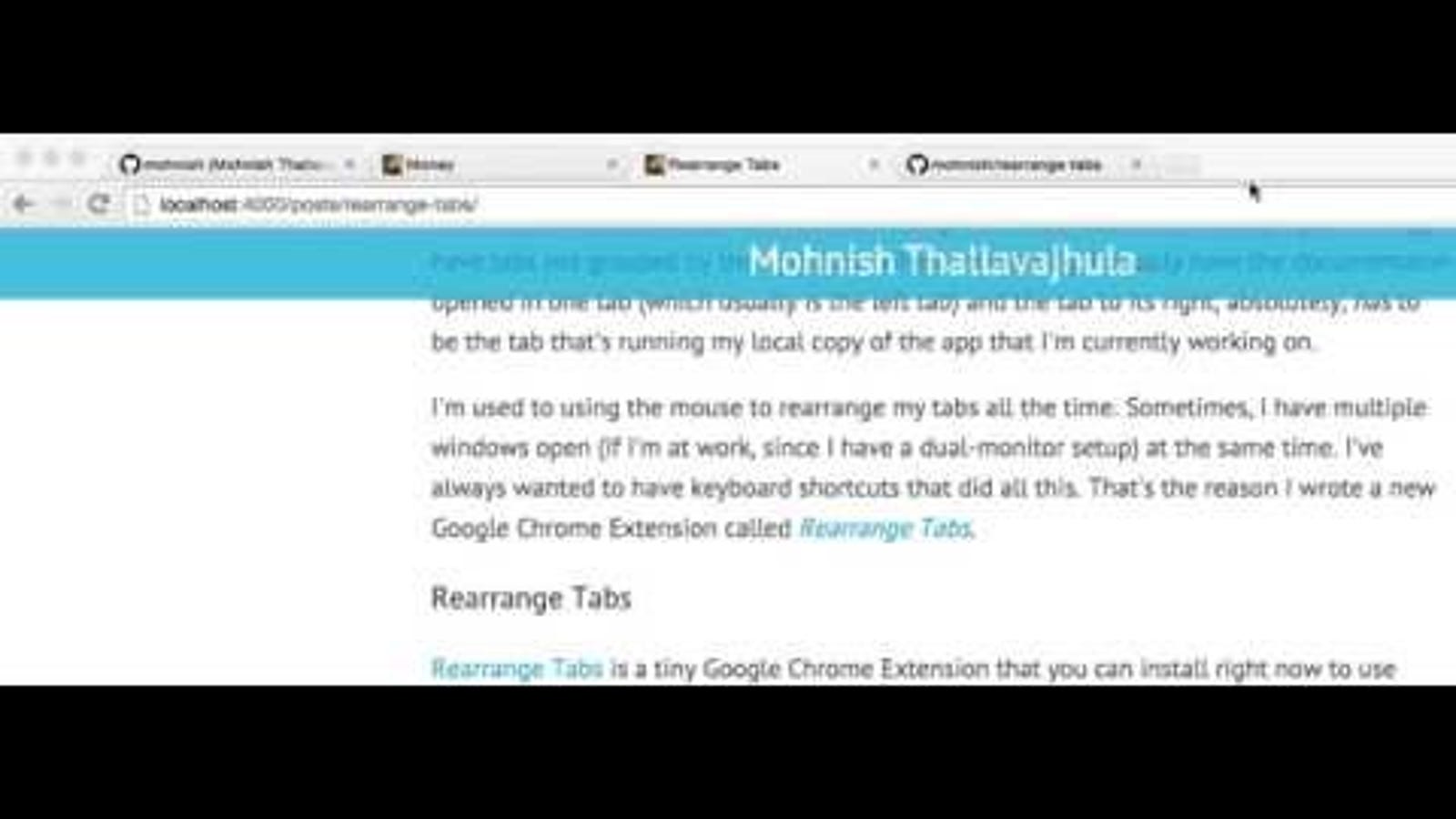The 2005 season saw some striking parallels between the two programs. Both had replaced their former head coaches, struggled through parts of their seasons, and would finish the regular season with 6–5 records. When the two met in Provo in November 2005, BYU was looking for its first win against the Utes in three seasons. Utah was looking for a winning record and a shot at a bowl game. BYU entered as the favorite because Utah would be playing without its starting quarterback and its best wide receiver, who had been injured in their previous game.
The Utes were starting JC transfer Brett Ratliff who had taken just three snaps the week before. Ratliff surprised the Cougars by completing 17 of 32 passes for 240 yards and four touchdowns, and rushing for 112 yards on 19 carries and a touchdown. There doesn't appear to be a clear-cut favorite in the Pac-12 South but you can certainly make a strong argument for the Utes.
For one, their recent track record under head coach Kyle Whittingham speaks for itself. You also know that this team will play tough, physical defense, especially with eight starters returning. The two biggest unknowns are the quarterback and running back positions.
The latter can be filled by a committee if need be but it's under center where I am most intrigued. I think Baylor transfer Charlie Brewer can really thrive in this offense, assuming he wins the starting job. I think he will, which is why I had a hard time finding even two losses on this schedule. The game in Los Angeles against USC could end up deciding the division, but I also see a potential path for Utah to win it with a loss on Oct. 9. As long as all the pieces come together and the key guys stay healthy, I think these Utes could potentially win 10 games in the regular season alone. For 2010, the game was played at Rice-Eccles Stadium in Salt Lake City.
It was the last game for the two teams as conference rivals. BYU entered the game with a 6–5 while Utah came in at 9–2. In a low-scoring affair, BYU scored two field goals, one in each of the first two quarters, to lead 6–0 at halftime.
In the third quarter, the Cougars got a touchdown on a 21-yard pass play from Jake Heaps to McKay Jacobson, to take a 13–0 lead. The Cougars responded with a field goal, to make it 16–10. In 2007, the teams clashed on November 24, in what was a mostly defensive game.
The game's first 12 points were only field goals, BYU's Mitch Payne scoring 9 points. Utah then scored the first touchdown, taking the lead 10–9. In the fourth quarter, BYU came back with a late-game drive that included a 4th and 18 from its own 12-yard line. Four plays later, freshman running back Harvey Unga bulled into the endzone to win it 17–10. The atmosphere in the stadium, for a game between two nationally ranked teams, was absolutely electric!
And the Utes' football team staged an impressive, dominating performance to drill the Ducks 38-7 and wrap up the Pac-12 Southern Division title. The only negative in all of this was the obnoxious, foul-mouthed Utah fan who was sitting a couple of rows behind us. My 10-year-old grandson and his Dad who accompanied me to the game are Oregon fans, as they lived near Eugene for several years and developed fandom for the Ducks' program. Thus, they wore their Oregon gear to the game, and most of the Utah fans who were sitting around us were real good sports about it, gave them some good-natured ribbing and actually expressed interest in how they became Oregon fans. I'm pretty sure alcohol was involved, because this guy was out of control. It created a bit of an awkward, uncomfortable situation for me and my family, and I suspect some other fans that were sitting close by felt much the same way.
I was tempted to turn around and say something like "Hey, man, show some class and stop acting like an ass!" But I figured we'd just have a brawl break out in the stands, and nobody needs that. My young grandson is not accustomed to hearing that kind of language, and it's sad that some people seem to have no filter whatsoever and feel the need to publicly express themselves in that manner. Trust me, I've certainly used plenty of that colorful language in my lifetime, but not when young kids or ladies are present or within ear-shot. Sure, I'm all for freedom of speech, but not when it serves to spoil a special experience for a 10-year-old kid.
During the first 8 minutes of the game, Utah forced a Las Vegas Bowl record five turnovers in the first quarter, resulting in a 35–0 lead. Though BYU would score four unanswered touchdowns to narrow the lead to 35–28, Utah was able to secure a crucial first down at the end of the game to run out the clock. After the first five minutes of the game, BYU never possessed the ball with a chance to tie or take the lead in the game. Utah took the bowl game with a 35–28 win, ending Bronco Mendenhall's last game as BYU's head coach with a loss. In 2012, the Holy War ended in dramatic and odd fashion.
Utah went into the 4th quarter up 17 points, but the BYU offense brought the game within 3. With less than 30 seconds remaining, BYU quarterback Riley Nelson successfully drove into Utah territory on 4th and long with a 40-yard pass to wide receiver, Cody Hoffman. On what was thought to be the final play of the game, Nelson's deflected pass fell incomplete as time seemingly expired and the Utah fans rushed the field. The pass, however, was shown to hit the ground with one second left, giving BYU an opportunity to kick a field goal from 51 yards . On the attempt, the kick was blocked, the ball recovered by BYU, and the runner subsequently tackled.
However, Utah fans again rushed the field, this time before the play was over, thus earning a penalty that gave BYU another chance at a field goal, this one from 36 yards. That attempt was unsuccessful, however, when the kick hit the left upright and went awry, leading Utah fans, who were already on the sidelines, to rush the field for a third and final time. With Utah having left for the Pac-12 and BYU declaring conference independence, the 2011 BYU home game against Utah was the rivalry's first non-conference game since 1898. BYU suffered a rough start on its opening drive, when on its third play, the ball was snapped over quarterback Jake Heaps' head and recovered for a touchdown by Utah DE Derrick Shelby.
The remainder of the 1st quarter held similar luck for BYU, with Running back JJ Di'Luigi being stripped of the ball on 1st and Goal from the Utah 6-yard line. The 2nd quarter proved more competitive with BYU completing a 32-yard TD pass to WR Ross Apo. Utah answered with 30-yard TD pass from QB Jordan Wynn to freshman TE Jake Murphy, just two minutes before the half. In 2009, in the second overtime game in series history, BYU defeated Utah 26–23. Utah scored 14 fourth-quarter points to force overtime, but their comeback fell short.
Utah managed a field goal in overtime to take a 23–20 lead, but on BYU's possession, Max Hall connected to tight end Andrew George for a 25-yard touchdown reception and the victory. The game was dubbed "George is still running" by BYU fans. BYU jumped to a 49–0 lead before Utah scored its first touchdown just before halftime. Behind quarterback Ty Detmer, BYU would score eight touchdowns on its first eight possessions and amass over 750 yards of total offense during the 70–31 win.
Utah would score three touchdowns in the fourth quarter. The 101 points the two teams scored is still a series record. Only four years removed from shocking the college football world in 2004 and becoming the first team from outside the BCS to bust into the BCS, Utah returned to the national stage by going undefeated throughout the year. The game was fairly even until Utah scored a touchdown with 15 seconds left in the half to put the Utes up by 10. In the second half, BYU cut the lead to three by the end of the third quarter but couldn't keep Utah out of the endzone in the fourth quarter. Utah would score three times in the final quarter to win 48–24.
The win gave BYU an undefeated record of 8–0 in Mountain West Conference play. Harline caught the pass on his knees in the end zone with no Utah defender near him. The play led to BYU fans creating and wearing T-shirts reading "Harline's still open."
The 1994 season was McBride's best, as he led the Utes to a 10–2 record and a top-10 finish in national rankings. The Utes and Cougars also staged one of the best matchups in the rivalry's history, meeting for the first time as top-25 ranked teams. The Utes won the game 34–31, which was coincidentally the same score of their meeting a year before.
Utah ran its rivalry winning streak up to three games a year later, with a 34–17 win at BYU. The Utes and Cougars would trade wins and losses the next couple of years, before the 2000 season. The rivalry began to change in 1993, during Ron McBride's fourth season as head coach, the Utes won their first game in Provo in twenty-two seasons and their first since LaVell Edwards became BYU head coach. Late in the fourth quarter, Utah's kicker Chris Yergensen, who had already missed two out of three field goals on the day, attempted to break the 31–31 tie. This time, Yergensen did not miss and kicked the game-winning 55-yard field goal, the longest of his career, with less than a minute remaining.
While the two teams have not necessarily been strong at the same time, the two teams had the most conference championships in the Mountain West Conference before both left the MW in 2011. Each team has had four conference championships since the creation of the MW in 1999. Including championships of other conferences, Utah has 24 conference championships in its history, while BYU has 23. Both of these numbers are well ahead of the current MW member with the most conference championships, Colorado State, who has 15.
The 1984 BYU Cougars football team won a consensus national champion with an undefeated season and victory over Michigan in the 1984 Holiday Bowl. The Holy War is the name given to the BYU–Utah football rivalry. It is an American college football rivalry game played by the Brigham Young University Cougars and University of Utah Utes. The proximity of the two schools, the athletic successes of the two teams, and the longevity of the series also contribute to the rivalry. The Pac-12 South is one of the hardest divisions to predict this preseason. USC has the talent and schedule, Arizona State has momentum behind a good mix of talent and experience, while Utah has a relatively favorable slate, the best coach , and is the most reliable program out of that trio.
With that in mind, I'm taking the Utes to win the South and push for double-digit victories this fall. The addition of transfer quarterback Charlie Brewer should bolster a passing game that struggled in 2020, which adds to an offense that figures to have a steady ground game again and likely one of the top lines in the conference. As usual, Utah will be strong on defense, and the return of seven starters should entrench this group near the top of the Pac-12. In 1988, Utah had not beaten BYU since 1978 and entered the Holy War as 11-point underdogs. Utah had a mediocre 5–5 record while BYU was 8–2 and had already accepted an invitation to the Freedom Bowl.
Instead Utah and quarterback Scott Mitchell jumped on BYU early and took a 21–0 lead on the way to winning 57–28. The 1988 team set a series record for points scored against BYU—a record that stands today. The game came to be known locally as "the Rice Bowl" because the game was played at Utah's Rice Stadium. This season, Brewer has completed 60% of his passes and threw three touchdowns and three interceptions. The offensive line didn't help Brewer out as he was sacked six times in three games. Considered a fringe national championship contender before the start of the season, Utah has lost two of its first three games with Pac 12 league play ahead.
Oregon never truly established its offense during the loss at Utah, but that isn't to say the Ducks didn't move the ball. Penalties getting the offense into obvious passing downs and leading to sacks. A negative run play leading up to a blocked field goal. The Ducks have to stay on schedule and use Travis Dye to do it. Oregon has to be true to itself, even if it means being stubborn, if it's going to put Utah to a real test.
In the 2017 matchup, Utah quarterback Tyler Huntley racked up a career-high 300 passing yards (27-of-36), and added a career-high 89 yards on the ground and a touchdown. The Utes held a 13-point lead to end the third quarter, but a late fourth quarter touchdown from BYU made it a six-point game, putting the pressure on the Utes' defense. They didn't disappoint, forcing three incomplete passes to regain possession and claim the victory. During the 1980 Holy War, BYU quarterback Jim McMahon helped engineer a blowout.
Most of the game he was heckled by a contingent of Utah fans at Rice Stadium. After throwing for another touchdown late in the 56–6 win, he simply pointed at the scoreboard to quiet the hecklers. It was also their second consecutive win against Utah and their eighth win out of the last nine games against Utah.
The fifty point margin of victory is the largest for either team in the series. This is a team built on rugged defense and a punishing running game. The biggest question marks are at quarterback and running back. Both Charlie Brewer and Cameron Rising seem capable of leading the offense at quarterback. Running back will be by committee to start, but backs like Micah Bernard and Tavion Thomas have the ability to emerge as stars. Once the Utes figure out those two positions, there is no visible limit to what this team could achieve in the season ahead.
university of utah football game tonight
The Utes have been playing football since 1892, when they played two of their three games against the local YMCA. Their history includes five consensus All-America selections, and BCS bowl victories in 2004 and 2008 under head coach Kyle Whittingham. Whittingham will have passed the mark in his 17th season. Lowe appeared in 16 combined games on special teams his first two seasons and played in all four games this season.
Rising played the rest of the game, mounting a comeback against SDSU before Utah lost in overtime. Rising had 153 passing yards and three touchdowns in the second half and overtime. Brewer was 14 of 26 for 107 yards and an interception Saturday. The game inside the game was so lopsided the first time that the response might dictate whether the rematch is a repeat or reversal. DeRuyter's defense has struggled against multiple tight ends all season and Utah, which uses two and three tight ends more than any team in the country, absolutely feasted on the Ducks. One tackle for loss coming on a sack that could've easily been thrown away.
A third-down conversion rate allowed that was of historic proportions. DeRuyter said he simplified the game plan and communication this week. His unit absolutely must have a better showing and he has to put his best players in position to make plays, then they have to actually make them.
The 100th meeting between the two schools saw Utah winning their 4th straight game at LaVell Edwards Stadium with the help of senior running back Zack Moss, who rushed for 187 yards and scored a touchdown. Utah would win the game, 30–12, and extend their winning streak over BYU to 9 games. During the postgame press conference, Hall was asked if he felt he had redeemed himself for his performance in the previous year's game in which he had five interceptions and one fumble. McBride, who had guided Utah to six bowl games and three bowl wins, entered the 2002 rivalry game in danger of being fired.



